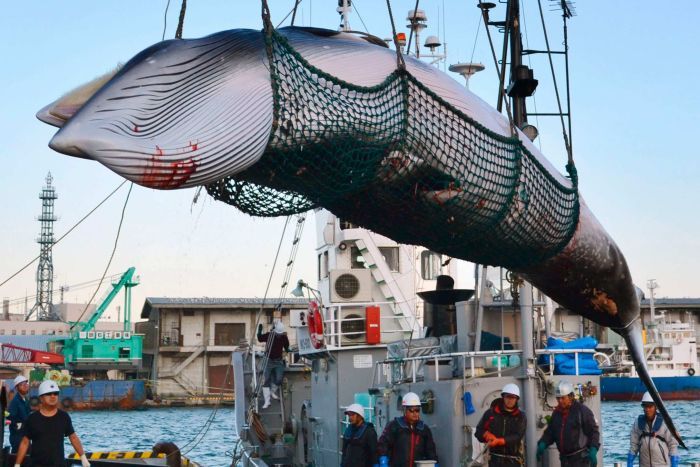Japan has officially announced it will withdraw from the International Whaling Commission (IWC) and resume commercial whaling in July 2019.
After certain populations of whales were driven nearly into extinction in 1986, the IWC was formed, and members agreed to a moratorium on hunting to allow whale stocks to recover. This agreement was signed by over 80 nations at the time, and commercial whaling was banned ever since.
Japan has consistently expressed opposition to the ban, and has actually continued the barbaric practice in the name of scientific research. The Japanese argue that the practice is part of their culture and should continue in a sustainable way.
The most recent numbers suggest that Japan killed 333 whales last year, 120 of which were pregnant, in Antarctic waters during the December to February.
In their announcement made today, Japanese officials justified their withdrawal from the IWC due to stocks being recovered back to healthy levels. They also claim that whale meat is part of a centuries-old Japanese tradition, despite a large population of Japanese citizens claiming they no longer consume the product.

Not surprisingly, responses from several governments and conservation organizations to the decision have been strong. Greenpeace accused Japan of being “sneaky”, and waiting until the holiday’s to announce their decision in hopes that the world would be too distracted to notice.
Australia’s Foreign Minister and Environment Minister released a joint statement condemning the decision as well, expressing severe disappointment with the decision.
In September 2018, the majority of nations at the IWC annual symposium approved a resolution stating that commercial whaling was no longer a valid economic activity, or needed for scientific research.
With less and less Japanese people eating whale meat, no significant scientific or economic benefits present, and the laundry list of environmental issues currently hitting the ocean from all sides, we stop and ask Japan one question…
Why?
Facebook Comments